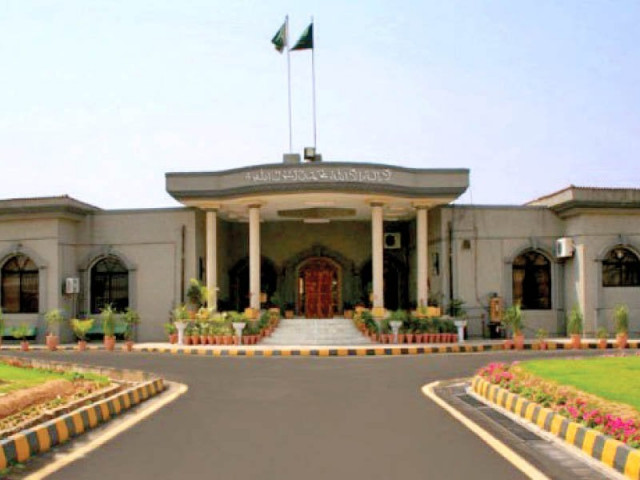IHC throws out plea against chief secretaries’ appointments
Says provinces are not aggrieved party; petitioners have not moved relevant forums

The Islamabad High Court (IHC) has dismissed a petition filed by officials of the provincial civil services against appointment of federal civil servants to the key post of chief secretaries, noting that the petitioners have not moved the relevant forums.
The petition, filed through advocate Umar Gillani, challenged appointment of Punjab Chief Secretary Jawad Rafique Malik, Khyber Pakhtunkhwa (K-P) Chief Secretary Dr Kazim Niaz, Balochistan Chief Secretary Captain (retd) Fazeel Asghar and Sindh Chief Secretary Syed Mumtaz Ali Shah.
The petition claimed that the practice to appoint a federal officer to hold the position of a chief secretary belonged to the colonial era and was started under the Government of India Act 1918 with the aim to rule the provinces with an iron fist.
It said the law had become void after independence and the Constitution clearly mentioned that each province would have its own civil service. It had requested the IHC to declare all these appointments illegal and to order appointment of officers from the provincial bureaucracy to these key positions.
Taking up the petition on Wednesday, an IHC single bench, headed by Chief Justice Athar Minallah heard arguments of the petitioner’s counsel. The judge asked the counsel if the provincial governments had raised with the federal government the issue of appointment of a federal officer as chief secretary.
The counsel said the petitioners had repeatedly filed representations but the provincial governments had not responded to them. He said the petitioners had challenged the actions of the federal government in their personal capacity because their vested rights were being infringed.
The court later issued a four-page written order, dismissing the petition.
According to the order, the provincial governments do not appear to be aggrieved in case of appointment of chief secretaries as they have not approached the competent forums established under the Constitution for resolving disputes between a provincial government and the federal government.
“In essence the grievance of the petitioners is in the nature of a dispute between the provincial governments and the federal government.
“There are various forums provided under the Constitution, such as the Council of Common Interest (CCI), which affords an opportunity to the provincial governments to raise their grievances.”
The order said Sub Article (1) of Article 184 explicitly says “the Supreme Court shall, to the exclusion of every other court, have original jurisdiction in any dispute between any two or more governments”.
“It is obvious that the framers of the Constitution have prescribed a constitutional mechanism for settling disputes between two or more governments. If disputes cannot be resolved through formal or informal forums, then the forum for adjudication is the apex court,” it added.
The order said this jurisdiction is exclusive and thus a high court is not competent to entertain a matter having the characteristics of a dispute between two or more governments.
“The petition is, therefore, not competent and accordingly dismissed because the prayers sought therein are not justiciable before this court. Moreover, posting/transfer of an officer as “chief secretary” of a province is an executive function warranting exercise of restraint,” it added.
In Pakistan, the position of a chief secretary is occupied by the highest-ranking civil servant in each of the four provinces and the two administrative units of Azad Jammu and Kashmir and Gilgit-Baltistan.
The chief secretaries are the administrative heads of their respective provinces. The position of a chief secretary is equivalent to the rank of a federal secretary and the position holder usually belongs to the Pakistan Administrative Service. A chief secretary directly reports to the chief minister of a province.


















COMMENTS
Comments are moderated and generally will be posted if they are on-topic and not abusive.
For more information, please see our Comments FAQ